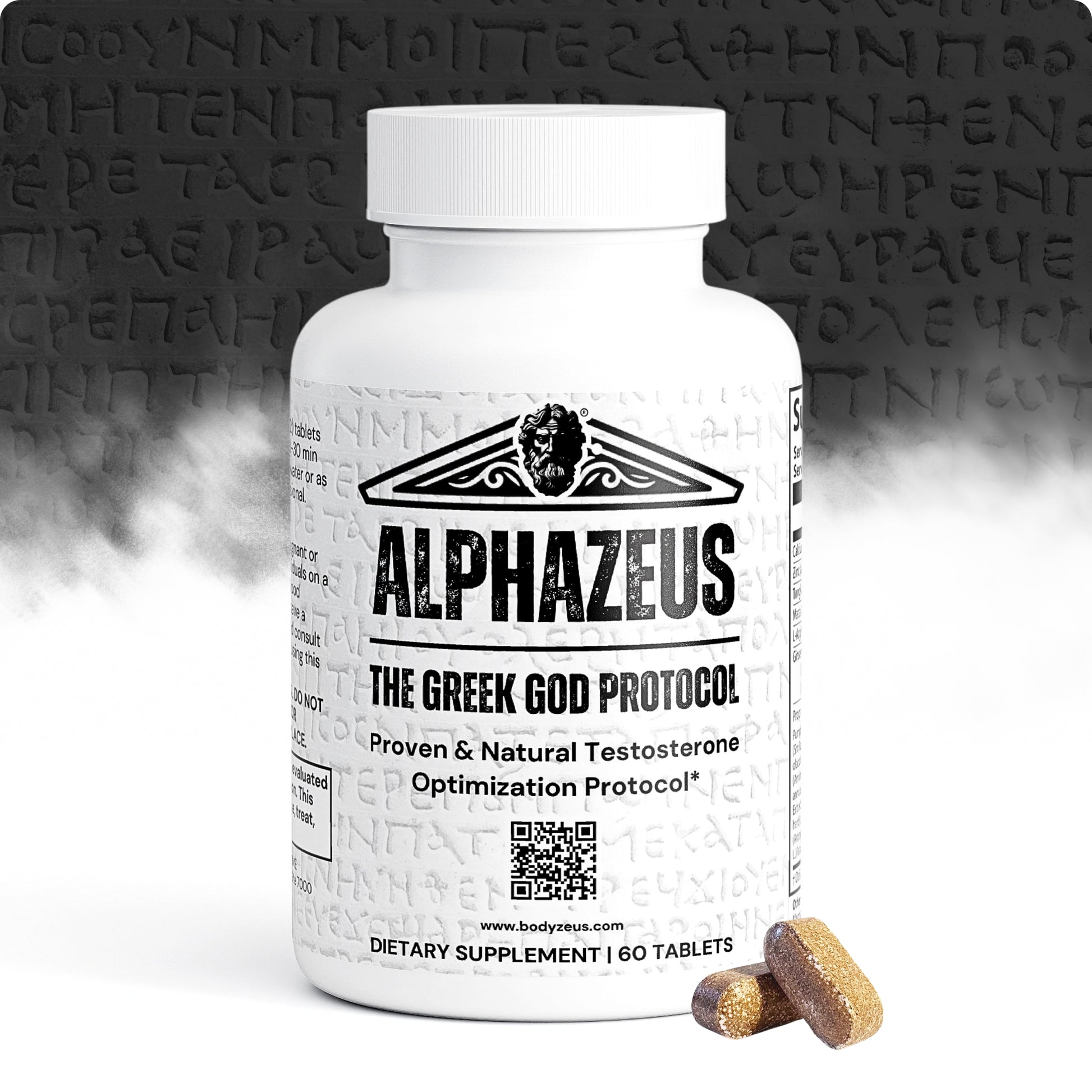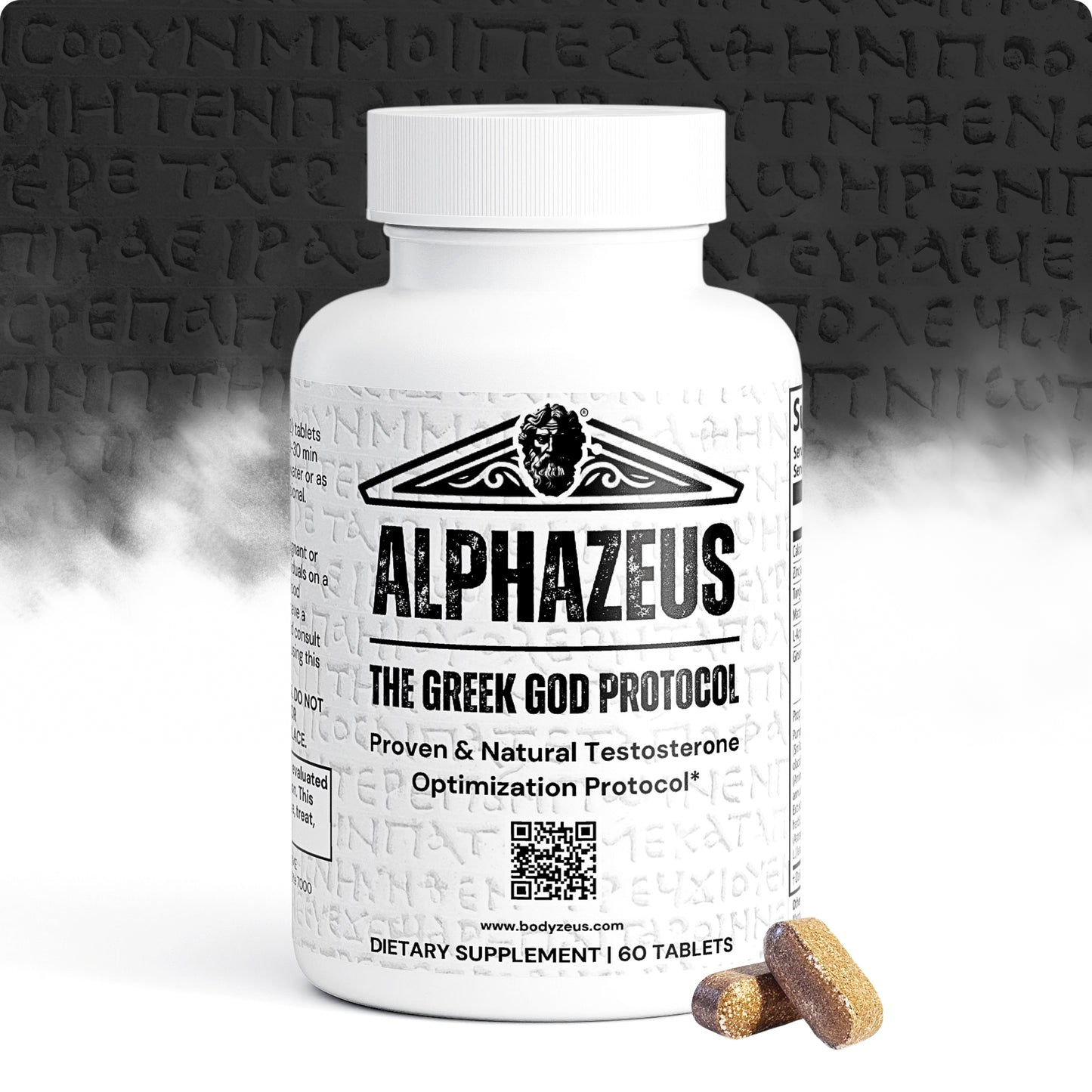Testosterone is often referred to as the "male hormone" because of its critical role in maintaining various aspects of male health. It plays a vital role in muscle mass, bone density, energy levels, mood, and, of course, sexual function. As men age, testosterone levels tend to decline, which can lead to a range of health issues. Fortunately, there are natural ways to support and maintain healthy testosterone levels. In this article, we'll explore the importance of three essential nutrients for testosterone production in males: zinc, magnesium, and vitamin D.
- Zinc: The Testosterone Booster
Zinc is an essential mineral that plays a pivotal role in numerous physiological processes, including testosterone production. It is involved in the synthesis of testosterone and helps maintain healthy levels of the hormone. Here's how zinc influences testosterone production:
a. Enzyme Activity: Zinc is a co-factor for enzymes involved in the conversion of cholesterol into testosterone. Without adequate zinc levels, this process can be hindered, leading to reduced testosterone production.
b. Testicular Function: The testes contain a high concentration of zinc, highlighting its importance for male reproductive health. Zinc helps support the proper function of Leydig cells in the testes, which are responsible for testosterone production.
c. Prevents Testosterone Binding: Zinc inhibits the binding of testosterone to sex hormone-binding globulin (SHBG), a protein that can render testosterone inactive. Higher levels of zinc mean more free, active testosterone in the body.
To ensure you're getting enough zinc, incorporate zinc-rich foods into your diet, such as lean meats, seeds, and whole grains.
- Magnesium: The Muscle Builder and Hormone Regulator
Magnesium is another essential mineral that plays a crucial role in testosterone production. It supports the following aspects of male health:
a. Muscle Health: Magnesium aids in muscle function and growth, which is vital for maintaining a healthy body composition. Strong, lean muscles contribute to overall well-being and testosterone production.
b. Sleep Quality: Good sleep is essential for testosterone production, and magnesium helps regulate sleep patterns. Quality sleep enhances the body's ability to produce and utilize testosterone efficiently.
c. Hormone Balance: Magnesium assists in regulating various hormones, including insulin and cortisol, which can indirectly affect testosterone levels. By maintaining hormonal balance, magnesium helps ensure optimal testosterone production.
To boost magnesium intake, consume magnesium-rich foods like leafy greens, nuts, seeds, and whole grains. In some cases, magnesium supplementation may be helpful.
- Vitamin D: The Sunshine Hormone
Vitamin D is often referred to as the "sunshine vitamin" because the body produces it when exposed to sunlight. This vitamin is essential for overall health and has a significant impact on testosterone production:
a. Receptor Activation: Vitamin D binds to specific receptors in the testes, enabling them to respond to luteinizing hormone (LH), a hormone that stimulates testosterone production.
b. Immune System Support: Vitamin D supports a healthy immune system, preventing illnesses that can hinder testosterone production.
c. Bone Health: Strong bones are essential for overall well-being, and vitamin D helps maintain bone density. Healthy bones contribute to the production of testosterone.
To ensure you're getting enough vitamin D, spend time outdoors in the sun and consume vitamin D-rich foods like fatty fish, fortified dairy products, and eggs. If necessary, consider vitamin D supplements.
Maintaining healthy testosterone levels is crucial for men's overall health and well-being. Incorporating zinc, magnesium, and vitamin D into your diet and lifestyle can help support testosterone production naturally. By prioritizing these essential nutrients, you can take proactive steps towards optimizing your testosterone levels and enjoying the benefits of a healthy hormonal balance.



